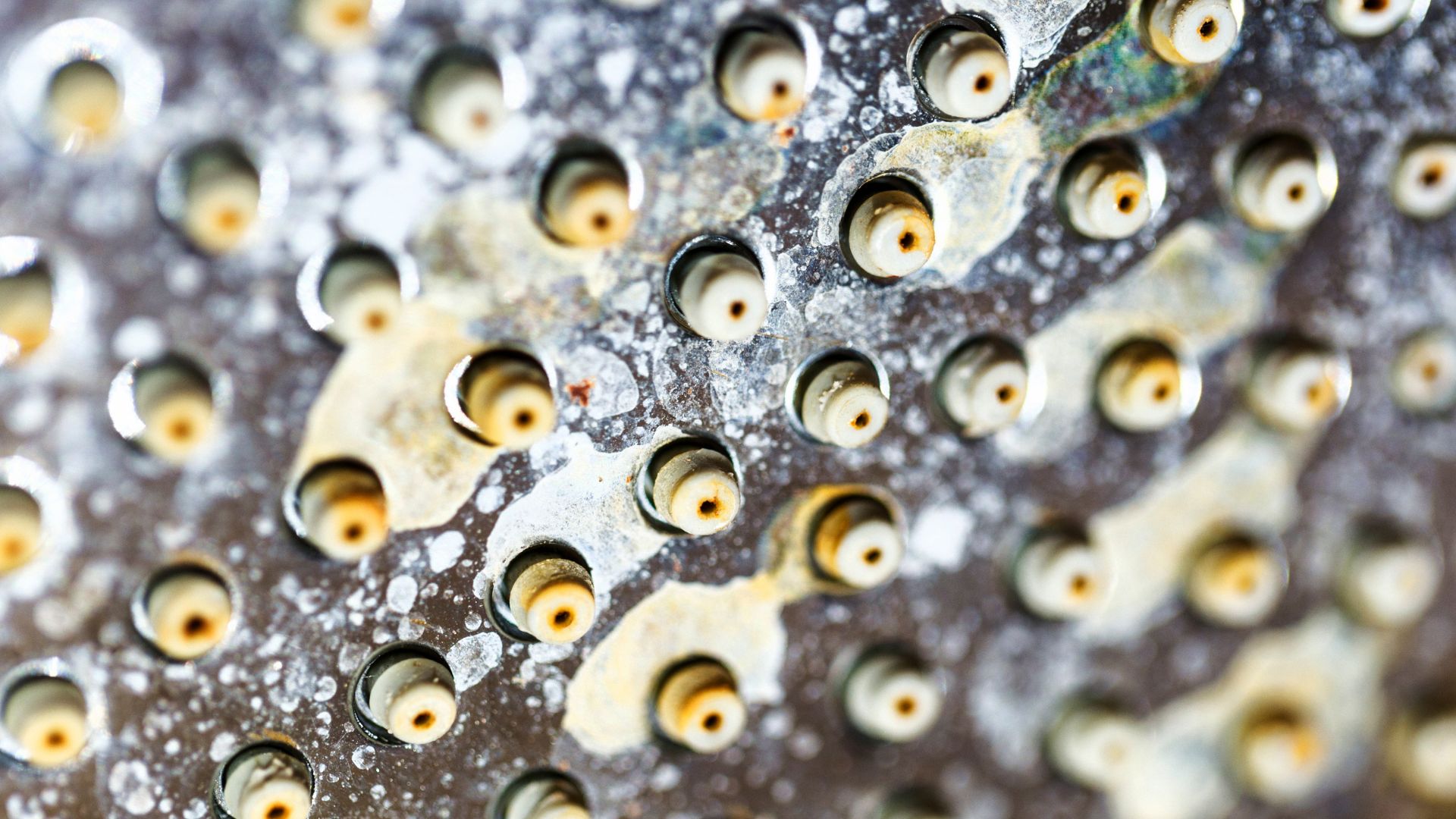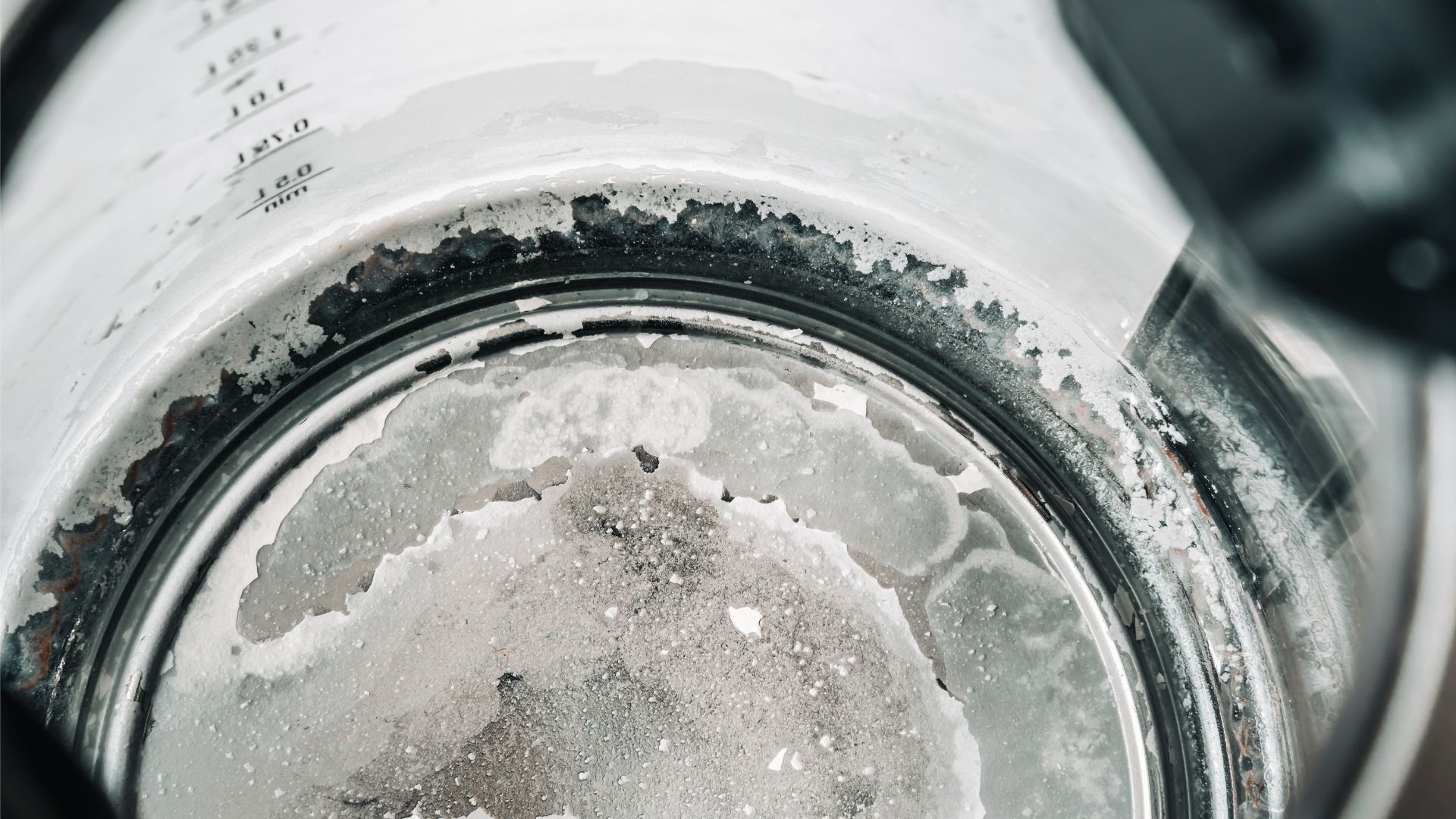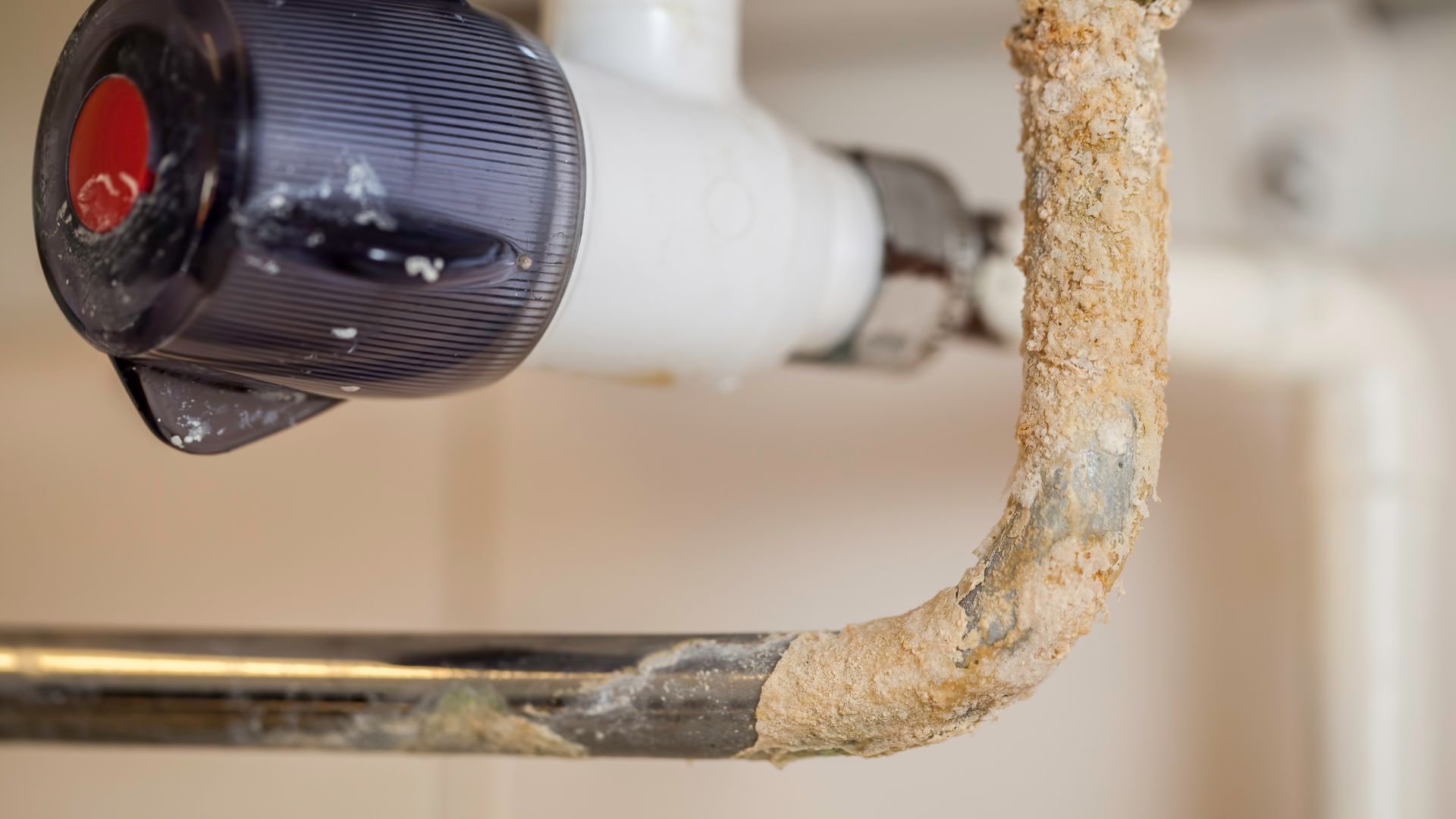Ever noticed your hot water taking longer to heat up or your shower pressure slowly dwindling? These subtle annoyances might be signs of a much bigger issue lurking in your hard water pipes.
Hard water is more than just a minor inconvenience. It can quietly destroy your plumbing system, damage household appliances, and drive up your energy bills without you even realising it.
In this blog, we’ll take a closer look at what hard water really is, why it’s such a big deal for your plumbing, and what long-term damage it can cause if left unchecked. We’ll also dive into practical steps you can take to safeguard your home, including water treatment solutions that are both effective and affordable.

What is Hard Water?
Hard wateris just regular water that’s picked up extra minerals, primarily calcium and magnesium, on its journey through the ground. While these essential minerals are harmless to drink, they’re not so kind to your plumbing system.
Water hardness is measured in grains per gallon (gpg) or milligrams per litre (mg/L). Anything above 7 gpg or 120 mg/L is considered hard. The mineral content in your local water supply can vary greatly depending on your region’s geology. Some areas in Australia are naturally more prone to high water hardness.
The trouble starts when those calcium and magnesium ions react with soap, leaving behind sticky soap scum. They also cling to plumbing fixtures, forming mineral buildup and scale buildup that eventually restrict water flow. Over time, the buildup doesn’t just affect pipes, it wreaks havoc on internal components of washing machines, dishwashers, water heaters and more.
What’s worse, these dissolved minerals don’t just wash away. They stick around, literally. The more hot water you use, the faster these minerals form limescale inside pipes and appliances, silently causing hard water problems that can become expensive to fix.
How Hard Water Interacts with Plumbing
Hard water and metal pipes are not a great mix. As hot water flows through your home’s plumbing system, the minerals present, especially calcium and magnesium, begin reacting with the inner surface of the metal pipes. This chemical reaction leads to limescale buildup, restricting proper water flow.
Mineral deposits left behind by dissolved minerals slowly build up into thick layers that clog pipes and put stress on plumbing components. Over time, you’ll likely notice decreased water pressure, sluggish drains, or water that takes forever to heat. All signs that your plumbing is under siege.
Even if your home has PVC or newer plumbing materials, they’re not completely safe. Hard water still causes scale buildup on the inside of those pipes, which can eventually lead to restricted flow, more energy usage, and, yep, costly repairs.
Inside your water heater tank, it’s the same story. Heating elements get coated in layers of particularly calcium-rich scale. This reduces heating efficiency, increases energy consumption, and often leads to a hot water heater working overtime. The result? Higher energy bills, more frequent breakdowns, and a much shorter appliance lifespan.
When you add up the increased strain on water heaters, washing machines, and even basic plumbing fixtures, it becomes clear how hard water issues snowball into something far more damaging. Reduced appliance efficiency and more energy are used just to keep things running.
The Long-term Effects on Pipe Infrastructure
Let’s talk about what happens if hard water is left unchecked. It’s not just a nuisance, it’s a long-term threat to your home’s plumbing system. Over time, those harmless-sounding mineral deposits start corroding the inside of your pipes. Even metal pipes, which are generally pretty tough, aren’t immune.
As the internal diameter of your pipes narrows, you’ll start noticing decreased water flow and increased water pressure. It might not seem like a big deal at first, but the pressure and buildup can cause even burst pipes. That’s when things go from annoying to catastrophic.
Corrosion doesn’t just impact the pipes themselves. It affects joints, seals, and all the little plumbing components holding your system together. These parts are especially vulnerable to mineral buildup and can fail when under too much stress.
Your household appliances also take a hit. Hard watershortens the lifespan of water heaters, washing machines, and dishwashers by reducing internal efficiency. The mineral content in hard water reduces appliance efficiency and can even void manufacturer warranties if damage is caused by poor water quality.
The heating elements inside these appliances suffer the most. With layer upon layer of scale buildup, they become far less effective at heating water. That means higher energy consumption, higher energy bills, and more frequent maintenance just to get the same result.

Signs That Hard Water is Damaging Your Home’s Plumbing System
How do you know if hard water is slowly ruining your pipes? It often starts with subtle hints:
- A metallic taste or smell in your water supply
- Discoloured water from your taps
- Decreased water pressure in sinks and showers
- Soap not lathering as it should
- Frequent clogs and blockages
You might also spot white, crusty mineral deposits around taps or see an increase in soap scum buildup in your bathrooms. These are the telltale signs that excess calcium and magnesium are causing mineral buildup throughout your plumbing system.
Eventually, you’ll be dealing with frequent maintenance, appliance repairs, or even full replacements. And the longer you wait, the higher the risk of more severe issues like burst pipes or major plumbing failures.
What This Means for Your Home or Business
Let’s face it, no one enjoys surprise plumbing issues. But hard water damage doesn’t just cause inconvenience; it leads to real financial strain. You’re spending more on energy, dealing with costly repairs, and replacing appliances far earlier than expected.
Health concerns also pop up when your water quality drops. While the minerals themselves aren’t dangerous, they can encourage bacteria buildup and reduce the effectiveness of cleaning products. Not ideal for a home or a commercial setting.
Insurance companies can also raise eyebrows when they see repeat plumbing claims. Some may even limit coverage if your home’s plumbing system hasn’t had proper water treatment. That’s a hidden cost not many people consider.
And let’s not forget energy usage. Every bit of scale buildup means your water heater is working harder, your appliances are using more energy, and your bills are climbing. If you’re seeing spikes in your energy bills, hard water might be the hidden culprit.
Practical Solutions to Address Hard Water and Mineral Buildup
The good news? You’re not stuck with hard water. There are plenty of ways to tackle it head-on and prevent long-term damage.
Start by installing a water softener system. These clever units use ion exchange to replace calcium and magnesium ions with softer ones like sodium or potassium. The result is soft water that flows easily, cleans better, and is much friendlier on your plumbing system.
Water softeners are just one part of the picture. Reverse osmosis systems and filtration systems can help improve water quality even further by removing additional minerals present in your supply. Together, these systems create a full-on defence against hard water problems.
Regular maintenance is also a must. Descaling agents and chemical treatments can dissolve mineral deposits and keep things flowing. A little regular cleaning of your fixtures and appliances goes a long way toward preventing scale buildup.
And don’t underestimate the value of a professional plumber. Scheduling inspections and maintenance services can help catch issues early before they balloon into bigger problems. A professional can check for scale buildup, test your water hardness, and recommend the best water treatment solutions.
You might also consider upgrading older plumbing components with materials that are more resistant to mineral buildup. It’s a larger investment upfront but can save you thousands in the long run by avoiding expensive repairs.

Ready for a Smoother Flow? Let Big Blue Plumbing Help
If hard water’s giving you grief, Big Blue Plumbing is here to help. We know the signs, the damage it can cause, and most importantly, how to fix it.
Our team of expert plumbers can install the right water softening systems, provide tailored maintenance services, and help you implement preventative measures that protect your home and your budget.
Don’t wait for clogged pipes or a surprise spike in your energy bills to take action. Reach out to Big Blue Plumbing today and let us help you restore proper water flow, improve appliance efficiency, and extend the life of your home’s plumbing system.
With the right water treatment in place, you’ll be saving more, wasting less, and enjoying water the way it’s meant to be clean, soft, and reliable.



